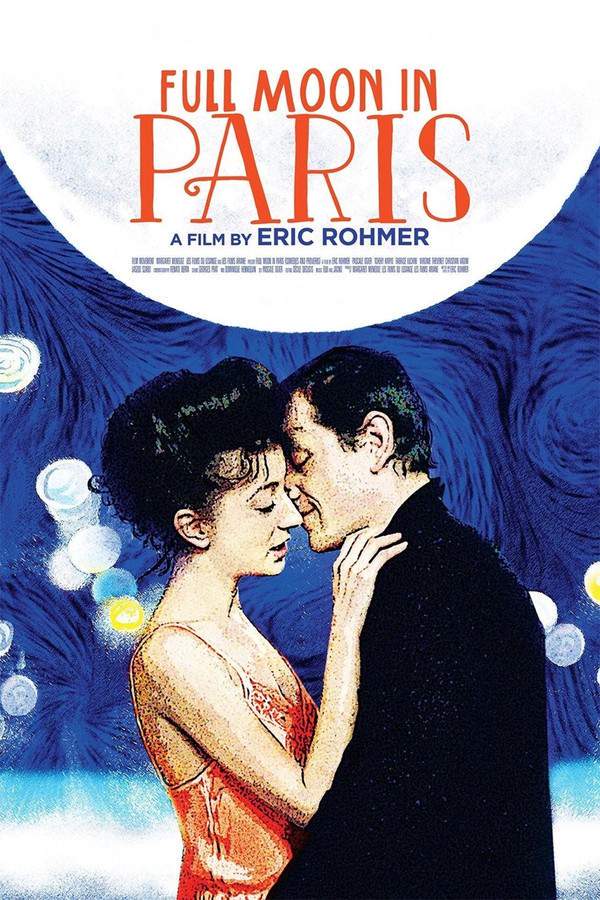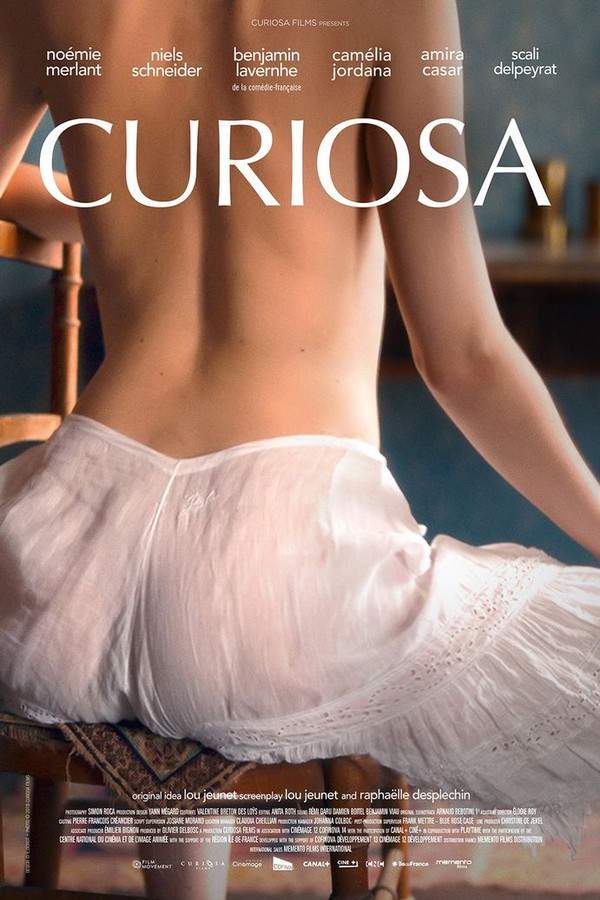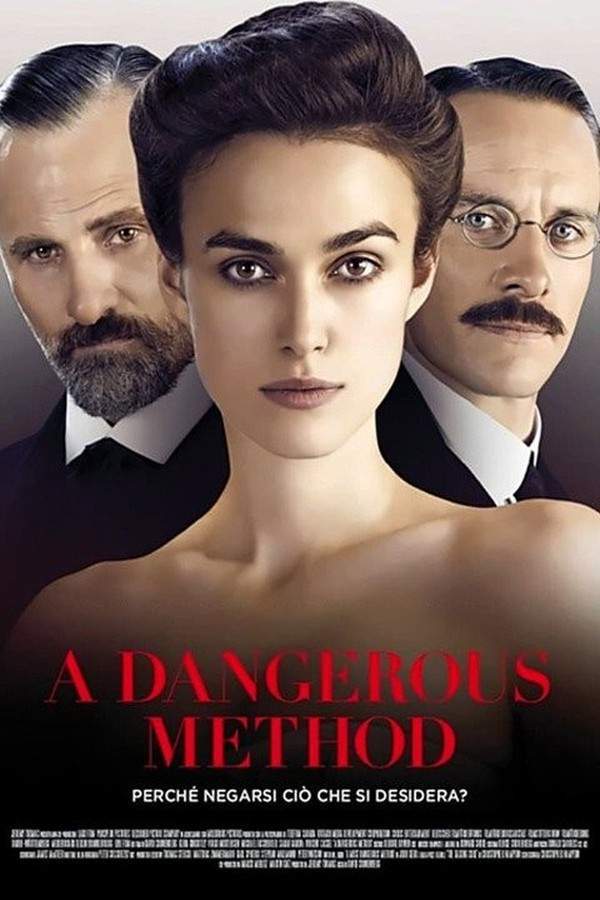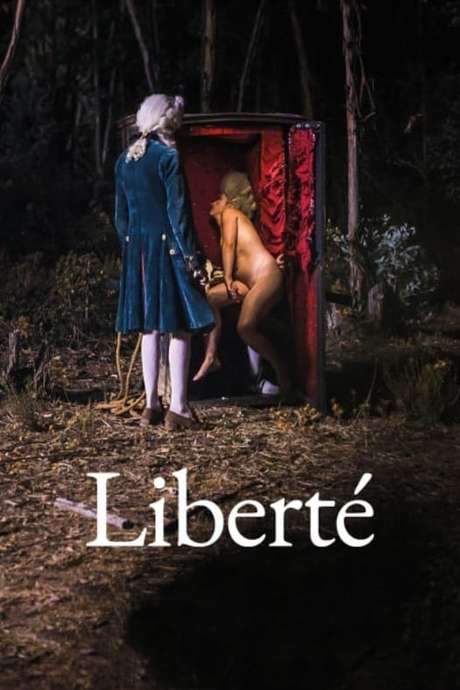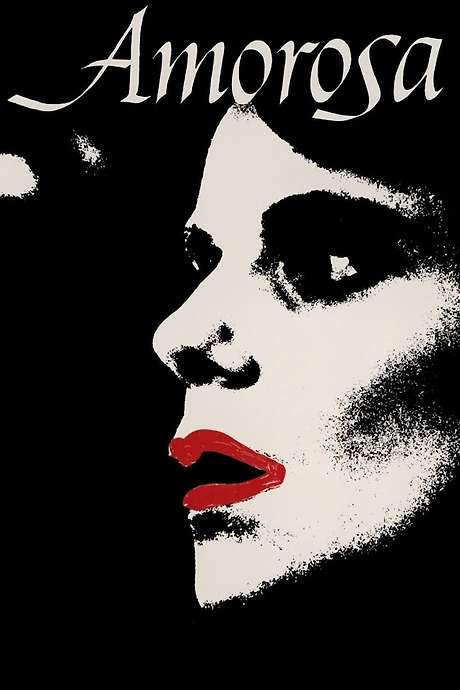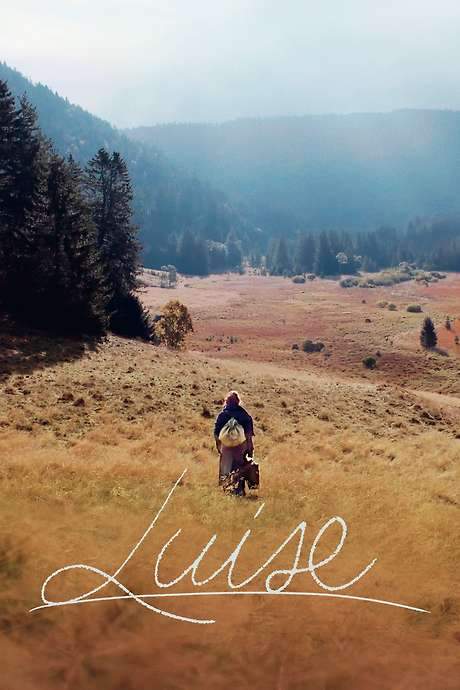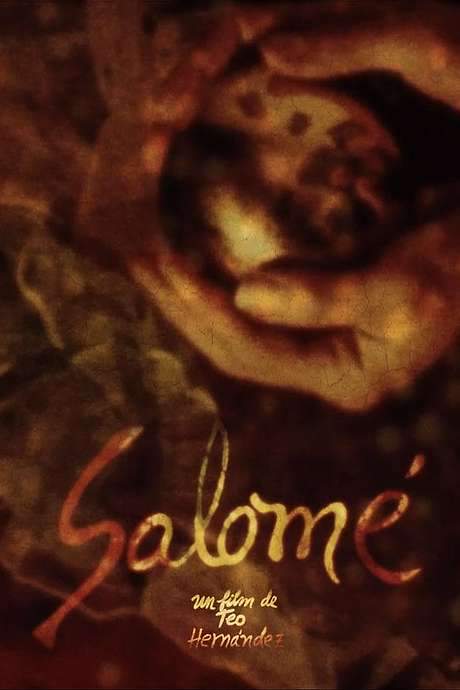Lou Andreas-Salomé, The Audacity to be Free 2018
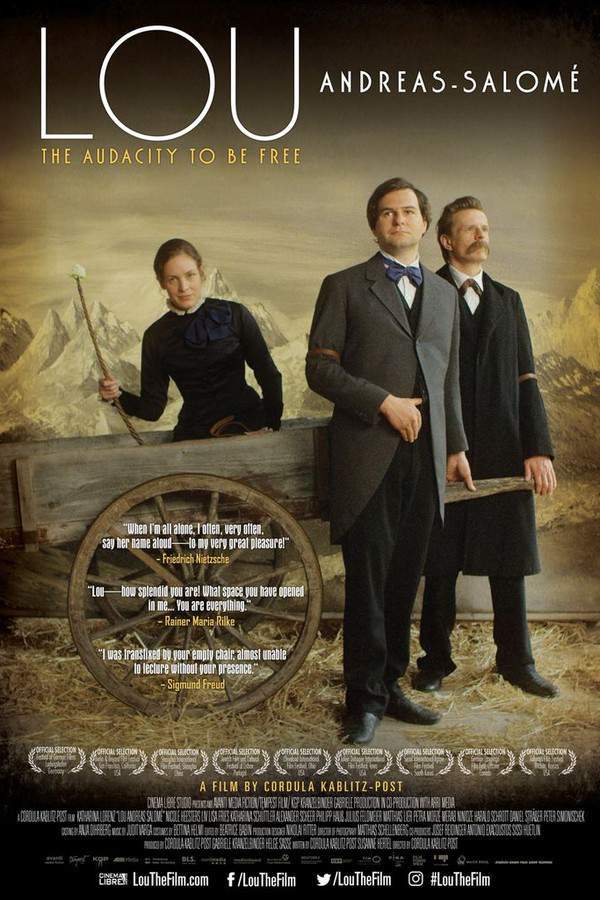
A celebrated psychoanalyst, Lou Andreas-Salomé, teams up with a young writer, Ernst Pfeiffer, to document her remarkable life story. Through their collaboration, they explore the complexities of her past, uncovering personal struggles and the unconventional choices that shaped her. As they work together, the lines between professional partnership and something deeper become increasingly blurred, revealing the courage and determination of a woman who challenged societal norms.
Does Lou Andreas-Salomé, The Audacity to be Free have end credit scenes?
No!
Lou Andreas-Salomé, The Audacity to be Free does not have end credit scenes. You can leave when the credits roll.
Meet the Full Cast and Actors of Lou Andreas-Salomé, The Audacity to be Free
Explore the complete cast of Lou Andreas-Salomé, The Audacity to be Free, including both lead and supporting actors. Learn who plays each character, discover their past roles and achievements, and find out what makes this ensemble cast stand out in the world of film and television.

Liv Lisa Fries
Lou Andreas-Salomé (16 Jahre)

Alexander Scheer
Friedrich Nietzsche

Merab Ninidze
Friedrich Carl Andreas

Helena Pieske
Lou Andreas-Salomé (6 Jahre)

Julius Feldmeier
Rainer Maria Rilke

Katharina Lorenz
Lou Andreas-Salomé (21-50 Jahre)

Katharina Schüttler
Mariechen

Matthias Lier
Ernst Pfeiffer

Nicole Heesters
Lou Andreas-Salomé (72 Jahre)

Philipp Hauß
Paul Rée
External Links and Streaming Options
Discover where to watch Lou Andreas-Salomé, The Audacity to be Free online, including streaming platforms, rental options, and official sources. Compare reviews, ratings, and in-depth movie information across sites like IMDb, Rotten Tomatoes, Metacritic or Movie Insider.
Ratings and Reviews for Lou Andreas-Salomé, The Audacity to be Free
See how Lou Andreas-Salomé, The Audacity to be Free is rated across major platforms like IMDb, Metacritic, and TMDb. Compare audience scores and critic reviews to understand where Lou Andreas-Salomé, The Audacity to be Free stands among top-rated movies in its genre.

The Movie Echo Score
Overall, Lou Andreas-Salomé, The Audacity to Be Free offers a balanced biographical portrait with notable strengths in characterization and craft. Critics and audiences alike praise the nuanced depiction of the titular figure and the director’s adept handling of pacing, though some find the focus on personal relationships detracts from intellectual depth. The film’s moderate sensory touches and period detail further support its tone. Ultimately, it delivers a thoughtful yet uneven celebration of a pioneering thinker.
The Movie Echo Score Breakdown for Lou Andreas-Salomé, The Audacity to be Free

Art & Craft
Technical components are handled with reliable consistency and occasional flair. Reviewers note the direction’s confident staging and polished editing, while period production design and cinematography capture the era with an understated palette. A minor critique arises regarding stylistic choices that sometimes feel didactic, yet these do not significantly undermine the film’s visual clarity. Overall, the film’s craftsmanship provides a solid foundation for the story.

Character & Emotion
Character portrayal is a definitive highlight of the film. Lou is depicted with convincing depth and emotional nuance, supported by a performance that balances her intellectual rigor with personal vulnerability. Critics value the chemistry between Lou and her contemporaries, noting that the film avoids hagiography while maintaining empathy. These elements combine to present a richly drawn lead whose inner conflicts remain compelling throughout.

Story & Flow
The narrative structure yields mixed impressions across reviewers. While many find the pacing measured and the dramatic arc absorbing, others criticize its emphasis on personal relationships at the expense of Lou’s intellectual contributions. Commentary frequently cites a lack of originality in the biopic conventions and a tendency to reinforce familiar patriarchal narratives. Consequently, the story engages sporadically without fully sustaining its thematic promise.

Sensory Experience
The film’s sensory elements deliver a pleasing but uneven experience. A gentle musical score and soft lighting lend a lyrical quality to flashbacks, yet some critics note that the visual style occasionally feels didactic. Sound design remains functional without standout moments. Overall, the film’s audio-visual presentation supports the narrative tone but rarely achieves a transcendent immersive effect.

Rewatch Factor
Replay value is moderate, reflecting both the film’s strengths and its limitations. Viewers may appreciate revisiting the nuanced character moments and period details, but the conventional biopic framework and limited focus on intellectual themes may diminish subsequent enjoyment. Some praise its ability to spark curiosity about Lou’s life, suggesting a lasting appeal for audiences interested in feminist history. Overall, it offers sufficient incentive for a second viewing, though not compelling for all.

60
Metascore
tbd
User Score


67%
TOMATOMETER

0%
User Score

6.5 /10
IMDb Rating

2.50/5
From 2 fan ratings
Take the Ultimate Lou Andreas-Salomé, The Audacity to be Free Movie Quiz
Challenge your knowledge of Lou Andreas-Salomé, The Audacity to be Free with this fun and interactive movie quiz. Test yourself on key plot points, iconic characters, hidden details, and memorable moments to see how well you really know the film.
Exploring Lou Andreas-Salomé: A Quiz on Her Life and Legacy: Test your knowledge on the life, relationships, and creative journey of Lou Andreas-Salomé as depicted in the film.
In which year does Lou Andreas-Salomé's story take place within the context of the film?
1921
1933
1945
1911
Show hint
Full Plot Summary and Ending Explained for Lou Andreas-Salomé, The Audacity to be Free
Read the complete plot summary of Lou Andreas-Salomé, The Audacity to be Free, including all major events, twists, and the full ending explained in detail. Explore key characters, themes, hidden meanings, and everything you need to understand the story from beginning to end.
In 1933, amidst the rise of the Nazis and grappling with her isolation, the celebrated novelist and psychoanalyst Lou Andreas-Salomé finds herself residing in Göttingen, Germany, living a life overshadowed by illness and despair. Everything changes when a 40-year-old publisher, Ernst Pfeiffer, steps into her world, stirring memories of her great love, Rainer Maria Rilke. As Lou begins to open up emotionally once more, Pfeiffer, who admires her deeply, pretends to seek assistance for his marital troubles while subtly hoping to establish a connection with her.
Through a shared journey of reminiscence, he assists her in writing her memoirs, coaxing Lou to relive the vibrant moments that have shaped her existence. Yet, she holds back key parts of her narrative, leaving things unsaid.
Born in St. Petersburg in 1861, Lou was the youngest child among five brothers and the only girl. Her upbringing, though cultured and nurturing, often left her feeling like an outsider. The bond with her strict mother was strong, but it was her father who captured her affection. After losing him at the age of 16, her faith in divinity crumbled, leading her to rebellion against societal norms.
Refusing the confines of the church, she persuades a Dutch minister, Henrik Gillot, to provide her with private philosophical lessons, only to develop deep feelings for him. However, their relationship becomes complicated when he proposes marriage, which prompts Lou to flee St. Petersburg, swearing off romantic entanglements to pursue her intellectual aspirations.
Lou finds solace at the University of Zürich, yet a bout of pneumonia takes her to Rome for recuperation. There, amidst the suffragette’s salon hosted by Malwide Meyersbug, she meets Paul Rée, a friendship blossoming only after Lou declines his marriage proposal. This leads to her introduction to the enigmatic philosopher Friedrich Nietzsche, who perceives Lou as a kindred spirit. Despite a shared unrequited love for her, they craft ambitious plans for a communal intellectual retreat.
However, Lou’s time with Nietzsche is tumultuous due to the interferences of his sister, Elisabeth Nietzsche, who views Lou as a rival to her brother’s affections. Struggling against the jealousy and possessiveness of Rée as they relocate to Berlin, Lou’s literary success surges, while Rée stalls in his career.
Seeking independence, she ultimately accepts a marriage proposal from Friedrich Carl Andreas, a distinguished scholar of Persian literature, under the condition that their union remains unconsummated. Heartbroken, Rée exits her life forever, allowing Lou to immerse herself wholly in her writing. Despite achieving various aspirations, her chronic bronchitis lingers, and she toils incessantly, producing book after book.
When Lou encounters Rainer Maria Rilke—then a little-known poet—she initially underestimates him. However, their relationship evolves, and she finds herself captivated by his persistence, leading her to break her vow against love. Although she feels liberated by her emotions, the relationship remains doomed due to Rilke’s profound psychological struggles, and Lou eventually ends this chapter of her life.
In an attempt to numb her pain, Lou engages in a string of brief romances, leading her to drastic actions that threaten her very existence when faced with an unwanted pregnancy. The narrative shifts to Vienna in 1911, where Lou consults Sigmund Freud and embarks on the psychoanalysis journey, slowly unraveling the long-buried traumas of her youth.
Returning to Göttingen in 1933, Lou’s relationship with Pfeiffer deepens, but complications arise when he challenges her about her troubled marriage. Rejecting his confrontations, she attempts to write her memoir alone, only to contend with failing eyesight. Their bond is later renewed, and together they face the ominous threat of the Gestapo, culminating in the burning of her private diaries. Despite the fear and turmoil, Lou’s memoirs endure, preserving her extraordinary life’s odyssey for posterity.
Uncover the Details: Timeline, Characters, Themes, and Beyond!

Coming soon on iOS and Android
The Plot Explained Mobile App
From blockbusters to hidden gems — dive into movie stories anytime, anywhere. Save your favorites, discover plots faster, and never miss a twist again.
Sign up to be the first to know when we launch. Your email stays private — always.
Discover Film Music Concerts Near You – Live Orchestras Performing Iconic Movie Soundtracks
Immerse yourself in the magic of cinema with live orchestral performances of your favorite film scores. From sweeping Hollywood blockbusters and animated classics to epic fantasy soundtracks, our curated listings connect you to upcoming film music events worldwide.
Explore concert film screenings paired with full orchestra concerts, read detailed event information, and secure your tickets for unforgettable evenings celebrating legendary composers like John Williams, Hans Zimmer, and more.


Lou Andreas-Salomé, The Audacity to be Free Themes and Keywords
Discover the central themes, ideas, and keywords that define the movie’s story, tone, and message. Analyze the film’s deeper meanings, genre influences, and recurring concepts.

Unlock the World of Movies with Our Comprehensive Wiki
Dive into our Movie Wiki for in-depth film encyclopedia entries, including cast biographies, production trivia, plot synopses, behind-the-scenes facts, and thematic analyses. Whether you’re researching iconic directors, exploring genre histories, or discovering hidden easter eggs, our expertly curated movie database has everything you need to fuel your cinematic passion.

Similar Movies To Lou Andreas-Salomé, The Audacity to be Free You Should Know About
Browse a curated list of movies similar in genre, tone, characters, or story structure. Discover new titles like the one you're watching, perfect for fans of related plots, vibes, or cinematic styles.
Quick Links: Summary, Cast, Ratings, More

What's After the Movie?
Not sure whether to stay after the credits? Find out!
Explore Our Movie Platform
New Movie Releases (2026)
Famous Movie Actors
Top Film Production Studios
Movie Plot Summaries & Endings
Major Movie Awards & Winners
Best Concert Films & Music Documentaries
Movie Collections and Curated Lists
© 2026 What's After the Movie. All rights reserved.









